Click the inductee’s name to learn more about them.
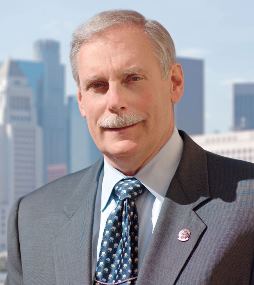
Roger Snoble (2011)
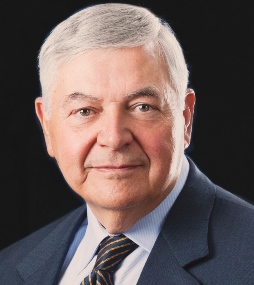
Peter Cipolla (2012)
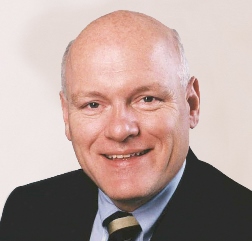
William Millar (2013)
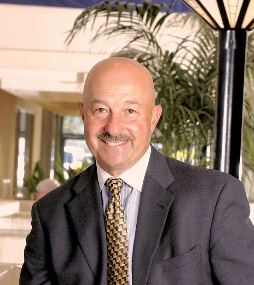
Richard Simonetta (2013)
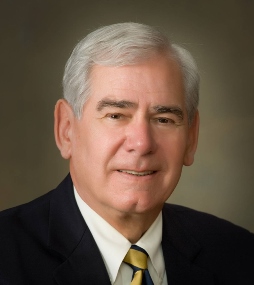
Rod Diridon, Sr. (2014)
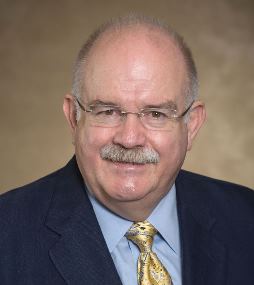
Ronald J. Tober (2014)
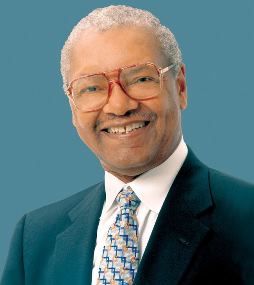
Elonzo (Lonnie) W. Hill (2015)
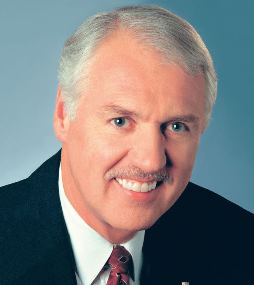
Jerome (Jerry) C. Premo (2015)
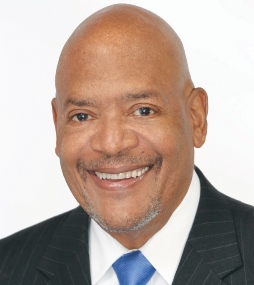
John Catoe Jr. (2016)
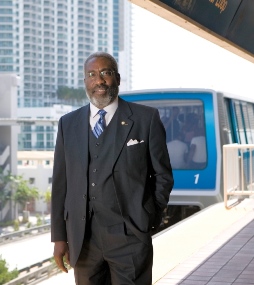
Frank Thomas Martin (2016)
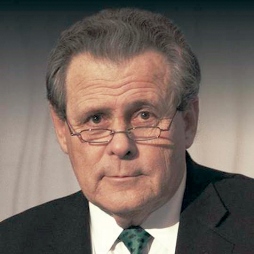
Michael Scanlon (2016)
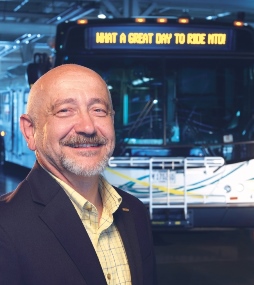
William L. Volk (2016)
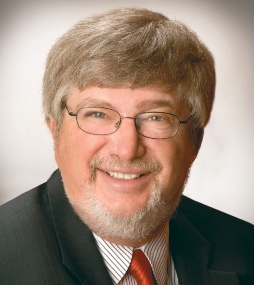
Alan C. Wulkan (2016)
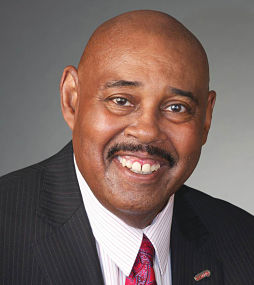
Robert Prince (2017)
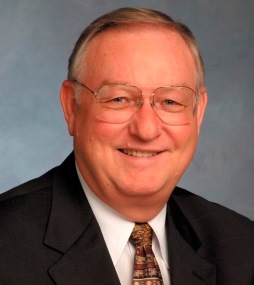
Fred M. Gilliam (2018)
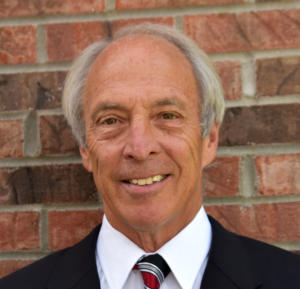
Thomas P. Hock (2018)
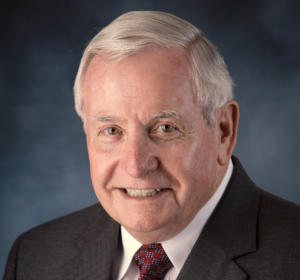
Jack Leary (2018)
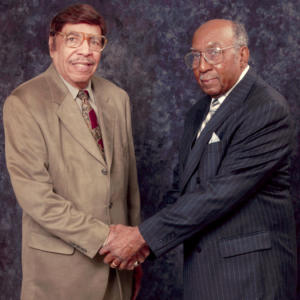
Reverend Jerry A. Moore (2018)

Harold B. Williams (2018)
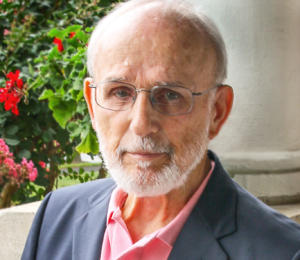
Tony Kouneski (2019)
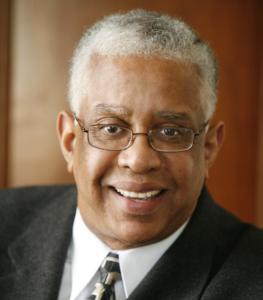
Paul A. Toliver (2019)
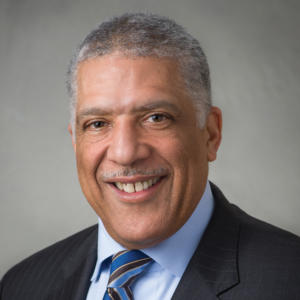
Michael S. Townes (2019)
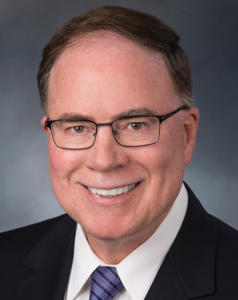
Richard A. White (2019)
Roger Snoble
 Roger Snoble’s career in public transportation systems spans four and a half decades. As CEO at public transit systems in San Diego, Dallas, and Los Angeles, he was a national transportation leader, not only for managing top public transit systems, but for initiating innovative funding strategies and transportation projects designed to keep pace with regional growth.
Roger Snoble’s career in public transportation systems spans four and a half decades. As CEO at public transit systems in San Diego, Dallas, and Los Angeles, he was a national transportation leader, not only for managing top public transit systems, but for initiating innovative funding strategies and transportation projects designed to keep pace with regional growth.
Peter Cipolla
 With more than 35 years of experience, Peter Cipolla has made a lasting impact mentoring industry leadership and managing public transit systems in Denver, CO; Lexington, KY; San Jose, CA; and Wilmington, DE. Active in APTA, he served as APTA chair and sat on the Executive Committee, the Board of Directors, and the Business Member Board of Governors. Today he continues his work at Hatch Mott MacDonald.
With more than 35 years of experience, Peter Cipolla has made a lasting impact mentoring industry leadership and managing public transit systems in Denver, CO; Lexington, KY; San Jose, CA; and Wilmington, DE. Active in APTA, he served as APTA chair and sat on the Executive Committee, the Board of Directors, and the Business Member Board of Governors. Today he continues his work at Hatch Mott MacDonald.
William Millar
 During his 40 year distinguished career, Bill Millar advanced public transportation on the local, state, and national levels. He created Pennsylvania’s statewide Free Transit Program for seniors, was Executive Director of Pittsburgh’s Port Authority, and as an APTA member, led the creation of the Transportation Cooperative Research Program. During his tenure as APTA President for 15 years, federal investment in public transit tripled.
During his 40 year distinguished career, Bill Millar advanced public transportation on the local, state, and national levels. He created Pennsylvania’s statewide Free Transit Program for seniors, was Executive Director of Pittsburgh’s Port Authority, and as an APTA member, led the creation of the Transportation Cooperative Research Program. During his tenure as APTA President for 15 years, federal investment in public transit tripled.
Richard Simonetta
 With a career dedicated to diversity and mentoring, Rick Simonetta’s 42 year transit career advanced quickly from Pittsburgh, Harrisburg, Denver, Ann Arbor and Columbus. Active in APTA, he served as Secretary-Treasurer and Vice Chair and was elected APTA Chair in 1994. Simonetta led MARTA during the 1996 Olympics and was named APTA’s 1997 Transit Manager of the Year. In 2003, he led Valley Metro Rail in Phoenix as it build its first light rail line.
With a career dedicated to diversity and mentoring, Rick Simonetta’s 42 year transit career advanced quickly from Pittsburgh, Harrisburg, Denver, Ann Arbor and Columbus. Active in APTA, he served as Secretary-Treasurer and Vice Chair and was elected APTA Chair in 1994. Simonetta led MARTA during the 1996 Olympics and was named APTA’s 1997 Transit Manager of the Year. In 2003, he led Valley Metro Rail in Phoenix as it build its first light rail line.
Rod Diridon, Sr.
 During a more than 35-year career, Rod Diridon, Sr., appreciates rail’s linchpin niche in the nation’s transportation network. He began his elected career in 1971 as a 31-year-old city council member followed by 20 years, six times chair, of the Santa Clara County Board of Supervisors and Transit Board. Diridon chaired APTA, the Bay area’s three regional agencies, and was UITP vice chair. He is especially proud of cofounding the APTA Diversity Council supporting women and minorities.
During a more than 35-year career, Rod Diridon, Sr., appreciates rail’s linchpin niche in the nation’s transportation network. He began his elected career in 1971 as a 31-year-old city council member followed by 20 years, six times chair, of the Santa Clara County Board of Supervisors and Transit Board. Diridon chaired APTA, the Bay area’s three regional agencies, and was UITP vice chair. He is especially proud of cofounding the APTA Diversity Council supporting women and minorities.
Ronald J. Tober
 Ronald Tober has worked for 45 years in the field of public transportation as a planner, manager, and chief executive. During his career he has had many exceptional achievements that have contributed to the advancement of public transportation and APTA.
Ronald Tober has worked for 45 years in the field of public transportation as a planner, manager, and chief executive. During his career he has had many exceptional achievements that have contributed to the advancement of public transportation and APTA.
Elonzo (Lonnie) W. Hill
 Hill’s career at the Chicago Transit Authority (CTA) began as a bus operator in 1961. During his 35-year-plus career at CTA, Hill held numerous positions with the agency; in 1991 he was promoted to executive vice president/service delivery. From 1987-1989, Hill chaired APTA’s International Bus Roadeo Committee and in this position helped develop the Rail Rodeo, which has expanded to rail cities throughout the U.S. and Canada. Further, Hill mentored hundreds of public transit professionals locally and nationally through his professional affiliations with numerous transit systems, APTA, COMTO, DOT, businesses and individuals. From 2003-2009, Hill served on the Metra Board of Directors.
Hill’s career at the Chicago Transit Authority (CTA) began as a bus operator in 1961. During his 35-year-plus career at CTA, Hill held numerous positions with the agency; in 1991 he was promoted to executive vice president/service delivery. From 1987-1989, Hill chaired APTA’s International Bus Roadeo Committee and in this position helped develop the Rail Rodeo, which has expanded to rail cities throughout the U.S. and Canada. Further, Hill mentored hundreds of public transit professionals locally and nationally through his professional affiliations with numerous transit systems, APTA, COMTO, DOT, businesses and individuals. From 2003-2009, Hill served on the Metra Board of Directors.
Jerome (Jerry) C. Premo
 For nearly 50 years Jerry Premo has been a passionate change agent in public transportation. After graduating from Notre Dame University and the Maxwell School at Syracuse University, he joined the Urban Mass Transportation Administration, the predecessor to the Federal Transit Administration, as one if its first dozen employees. Working tirelessly to advance the good work of transit, Jerry served twice on its Executive Committee, Board of Directors and as vice chair; co-chair of APTA’s (PT)2 cabinet; chair of the 2008 EXPO Committee; chair of the Legislative Committee for six years; Business Member Board of Governors for 11 years; APTA Presidential Selection Committee; and 2014 Strategic Planning Committee, among many others. In 2008, Jerry received APTA’s Outstanding Business Member Award.
For nearly 50 years Jerry Premo has been a passionate change agent in public transportation. After graduating from Notre Dame University and the Maxwell School at Syracuse University, he joined the Urban Mass Transportation Administration, the predecessor to the Federal Transit Administration, as one if its first dozen employees. Working tirelessly to advance the good work of transit, Jerry served twice on its Executive Committee, Board of Directors and as vice chair; co-chair of APTA’s (PT)2 cabinet; chair of the 2008 EXPO Committee; chair of the Legislative Committee for six years; Business Member Board of Governors for 11 years; APTA Presidential Selection Committee; and 2014 Strategic Planning Committee, among many others. In 2008, Jerry received APTA’s Outstanding Business Member Award.
John Catoe Jr.
 For more than three decades John B. Catoe, Jr. has contributed greatly to the delivery and enhancement of public transportation offerings throught the U.S. Under his leadership, improvements to trans¬portation infrastructures have been realized, transit services now reach more areas and serve greater numbers of passen¬gers, and fiscal responsibility has been restored. Throughout his career, John has championed inclusion, empowered diverse workforces to become our leaders of tomorrow, and aggressively encouraged participation in APTA.
For more than three decades John B. Catoe, Jr. has contributed greatly to the delivery and enhancement of public transportation offerings throught the U.S. Under his leadership, improvements to trans¬portation infrastructures have been realized, transit services now reach more areas and serve greater numbers of passen¬gers, and fiscal responsibility has been restored. Throughout his career, John has championed inclusion, empowered diverse workforces to become our leaders of tomorrow, and aggressively encouraged participation in APTA.
Frank Thomas Martin
 Frank Martin’s more than 40-year career has taken him from planning to operations, and to executive management from coast to coast including Gainesville (FL), Richmond (VA), Birmingham (AL), New Orleans (LA), Miami (FL), San Jose (CA), Tallahassee (FL), and Orlando (FL). Over Martin’s career he was active in APTA activities serving on the Board of Directors, American Public Transportation Foundation (APTF), and Business Member Board of Governors (BMBG). He was the catalyst as the founder of the APTA International Rail Rodeo which hosted the first Rodeo in Miami in 1993. Martin continued to serve as its Chair for eight years.
Frank Martin’s more than 40-year career has taken him from planning to operations, and to executive management from coast to coast including Gainesville (FL), Richmond (VA), Birmingham (AL), New Orleans (LA), Miami (FL), San Jose (CA), Tallahassee (FL), and Orlando (FL). Over Martin’s career he was active in APTA activities serving on the Board of Directors, American Public Transportation Foundation (APTF), and Business Member Board of Governors (BMBG). He was the catalyst as the founder of the APTA International Rail Rodeo which hosted the first Rodeo in Miami in 1993. Martin continued to serve as its Chair for eight years.
Michael Scanlon
 With nearly 50 years of leadership and influcne in the public transportation industry, Mike Scanlon has been a drum major for his industry and for APTA, promoting the influence of the association within and without the transportation business and advancing cooperation, collegiality, inter-agency partnerships, and the unique place our industry holds in the lives of the people and communities we serve.
With nearly 50 years of leadership and influcne in the public transportation industry, Mike Scanlon has been a drum major for his industry and for APTA, promoting the influence of the association within and without the transportation business and advancing cooperation, collegiality, inter-agency partnerships, and the unique place our industry holds in the lives of the people and communities we serve.
William L. Volk
 Bill Volk’s 44 years of dedication and service to the public transportation industry has had a significant impact on public transportation on the local and national levels. Under his leadership, MTD twice received APTA’s Outstanding Achievement Award. He served as APTA vice president-marketing, where he established funding in the APTA budget for marketing public transit, he received the 1991 Jesse Haugh Award. Bill was a longtime elected member of the APTA Small Operations Committee and also served on the APTA Executive Committee as vice chair-small operations and as chair of the APTA Legislative Committee.
Bill Volk’s 44 years of dedication and service to the public transportation industry has had a significant impact on public transportation on the local and national levels. Under his leadership, MTD twice received APTA’s Outstanding Achievement Award. He served as APTA vice president-marketing, where he established funding in the APTA budget for marketing public transit, he received the 1991 Jesse Haugh Award. Bill was a longtime elected member of the APTA Small Operations Committee and also served on the APTA Executive Committee as vice chair-small operations and as chair of the APTA Legislative Committee.
Alan C. Wulkan
 Alan Wulkan has more than 43 years of public transportation experience, with a unique combination of experience including CEO of his own firm, a partner in a small consulting firm, senior vice president in one of the largest engineering firms in the world, and CEO of a public transit agency. Alan was a founding member of the Center for Transportation Excellence, taking his local experience in helping more than 10 communities pass public transit sales taxes and sharing those successes with others across the nation.
Alan Wulkan has more than 43 years of public transportation experience, with a unique combination of experience including CEO of his own firm, a partner in a small consulting firm, senior vice president in one of the largest engineering firms in the world, and CEO of a public transit agency. Alan was a founding member of the Center for Transportation Excellence, taking his local experience in helping more than 10 communities pass public transit sales taxes and sharing those successes with others across the nation.
Robert Prince
 Bob Prince’s career in the public transit industry is defined by his outstanding management of transit operations at the Massachusetts Bay Transportation Authority (MBTA), his work in renewing and expanding the T’s historic infrastructure, and his dedication to support and mentor the next generation of public transit leaders. Over the next 25 years Bob held more than 20 jobs at the MBTA, culminating in July 1997 as the first African-American general manager of the fourth largest multimodal transportation agency in the United States, carrying more than one million passengers a day. He was a member of the American Public Transportation Foundation for 11 years, chaired the foundation for four years and is currently an emeritus member. Bob also served on the Rail Standards Policy and Planning Committee, the Rail Safety Committee, Conference Planning Committee, and the Meeting Site Committee. Bob has also been a key leader for COMTO, having been a member since 1985 and sitting on the board for several years culminating as national chair from 2012-2015.
Bob Prince’s career in the public transit industry is defined by his outstanding management of transit operations at the Massachusetts Bay Transportation Authority (MBTA), his work in renewing and expanding the T’s historic infrastructure, and his dedication to support and mentor the next generation of public transit leaders. Over the next 25 years Bob held more than 20 jobs at the MBTA, culminating in July 1997 as the first African-American general manager of the fourth largest multimodal transportation agency in the United States, carrying more than one million passengers a day. He was a member of the American Public Transportation Foundation for 11 years, chaired the foundation for four years and is currently an emeritus member. Bob also served on the Rail Standards Policy and Planning Committee, the Rail Safety Committee, Conference Planning Committee, and the Meeting Site Committee. Bob has also been a key leader for COMTO, having been a member since 1985 and sitting on the board for several years culminating as national chair from 2012-2015.
Fred M. Gilliam
 The legacy of Fred Gilliam’s leadership and integrity is visible from his career growth from a traffic checker to CEO. Within his various leadership roles, he continually increased ridership, expanded fleet operations and maintenance, and improved service despite challenging funding. Several examples of his leadership and vision can be seen in Memphis, TN; Denver, CO; New Orleans, LA; Houston, TX; Tulsa, OK; and Austin, TX.
The legacy of Fred Gilliam’s leadership and integrity is visible from his career growth from a traffic checker to CEO. Within his various leadership roles, he continually increased ridership, expanded fleet operations and maintenance, and improved service despite challenging funding. Several examples of his leadership and vision can be seen in Memphis, TN; Denver, CO; New Orleans, LA; Houston, TX; Tulsa, OK; and Austin, TX.
Throughout his career, Fredhas been an active member and passionate advocate for APTA, lending his talents to numerous committees and positions on APTA’s Executive Committee, Board of Directors, and the American Public Transportation Foundation.
Fred also devoted himself to the development of Leadership APTA, a program through which hundreds of emerging leaders have received transformative professional development and training. He will be remembered for mentoring many emerging leaders throughout his career and continuing to do so after his retirement.
Thomas P. Hock
 Hock began his career in 1970 with the Cincinnati law firm of Kennedy and Moore, which specialized in labor relations. In 1974, he joined ATE Management and Service Company (which later became Ryder/ATE) as labor counsel. From 1987-1993, Hock served as vice president of transit manage¬ment for Ryder/ATE. From 1993-1999, he was vice president of labor relations for the company. In addition to labor negotiations, he was instrumental in assisting public transit systems in Ohio, Kentucky and Tennessee to change the impasse procedure in their 13(c) agreements from binding interest arbitration to non-binding fact finding.
Hock began his career in 1970 with the Cincinnati law firm of Kennedy and Moore, which specialized in labor relations. In 1974, he joined ATE Management and Service Company (which later became Ryder/ATE) as labor counsel. From 1987-1993, Hock served as vice president of transit manage¬ment for Ryder/ATE. From 1993-1999, he was vice president of labor relations for the company. In addition to labor negotiations, he was instrumental in assisting public transit systems in Ohio, Kentucky and Tennessee to change the impasse procedure in their 13(c) agreements from binding interest arbitration to non-binding fact finding.
Over the course of his distinguished career, Hock’s impact in the industry, specifically labor relations, has been indisputable. He has negotiated more than 400 agreements in 38 different states, as well as overseeing the negotiation of countless other agreements.
Jack Leary
 Leary started his 48-year public transit career in 1966 as a Massachusetts Bay Transportation Authority (MBTA) streetcar operator, while pursuing a business degree at Northeastern University. He gradually took on significant new responsibilities, eventually being promoted to the position of Deputy General Manager of Operations at the MBTA with complete responsibility for all operating, maintenance, engineering and support departments. Major improvements were made to key performance indicators, ridership and customer service.
Leary started his 48-year public transit career in 1966 as a Massachusetts Bay Transportation Authority (MBTA) streetcar operator, while pursuing a business degree at Northeastern University. He gradually took on significant new responsibilities, eventually being promoted to the position of Deputy General Manager of Operations at the MBTA with complete responsibility for all operating, maintenance, engineering and support departments. Major improvements were made to key performance indicators, ridership and customer service.
In 1990, Leary became the Executive Director/Chief Executive Officer of the Bi State Development Agency (BSDA). He led the organization’s pursuit of transportation and development projects in both the states of Missouri and Illinois. Other testaments to his Leary’s leadership, included the recognition of BSDA when it won the APTA Public Transportation Innovation Award in 1994, the Minority and Women Advancement Award in 1996 .and Outstanding Public Transportation System Achievement Award in 1997.
Making a difference didn’t end when he left public service. Leary continued to contribute to the industry, as he founded a transportation consulting firm and was a principal in KL Executive Search.
Reverend Jerry A. Moore
 Reverend Jerry Moore and Harold B. Williams founded the Conference of Minority Transportation Officials (COMTO) to provide a forum for minority professionals in the transportation industry.
Reverend Jerry Moore and Harold B. Williams founded the Conference of Minority Transportation Officials (COMTO) to provide a forum for minority professionals in the transportation industry.
Rev. Moore was concerned about the lack of minority voices at the 1970 American Transit Association (APTA’s predecessor) conference in Mexico City. At that conference, he had a chance encounter with Urban Mass Transportation Administration Administrator Carlos Villarreal, which led to further discussions and a commitment from UMTA (predecessor to FTA) to sponsor the first “Minority Mobility in the 1970s” conference at Howard University in 1971. Villarreal charged Williams, director of the UMTA Office of Civil Rights at the time, to work with Moore. Immediately following the conference, the first meeting of COMTO took place.
Harold B. Williams
 Reverend Jerry Moore and Harold B. Williams founded the Conference of Minority Transportation Officials (COMTO) to provide a forum for minority professionals in the transportation industry.
Reverend Jerry Moore and Harold B. Williams founded the Conference of Minority Transportation Officials (COMTO) to provide a forum for minority professionals in the transportation industry.
Williams was a former FTA associate administrator and longtime director of civil rights for FTA’s predecessor organization, UMTA. He was also deputy commissioner of equal educational opportunity in the U.S. Department of Education. At U.S. DOT, under both Democratic and Republican presidents, Williams helped develop far-reaching regulations for equal opportunity in public transportation, including Title Vl., and equal access to service. He also created diversity and inclusion regulations regarding workforce and the use of small, minority, and woman-owned businesses in all federally funded or assisted public transportation. Following his retirement from DOT, he was a consultant to public transit agencies and on issues of equal opportunity.
Tony Kouneski
 Tony Kouneski has been a trailblazer throughout his 45-year public transportation career. Many progressive marketing, service delivery, safety and staff development programs can be attributed to his leadership.
Tony Kouneski has been a trailblazer throughout his 45-year public transportation career. Many progressive marketing, service delivery, safety and staff development programs can be attributed to his leadership.
For 12 years Tony was a potent force in the delivery of APTA member services. When a GM encountered an unfamiliar situation, Tony was the person’s first call. He fostered Leadership APTA, CEO committees, international missions, peer review efforts, technical papers, operating and equipment standards and the Safety Audit program. His leadership made APTA’s conferences and the EXPO more dynamic and relevant.
Tony has long championed the promotion of minorities and women, as recognized with APTA’s Minority Development Award and the Women in Transit Committee’s Advancement of Women in Management Award.
Michael S. Townes
 During his 38-year career in public transportation, Michael S. Townes has been recognized as a leader and industry legislative advocate. Townes served in many roles at APTA, chairing the association from 2007-2008. He held leadership roles at public transit systems in Stockton, CA, and Norfolk and Hampton, VA. During his 11 years as chief executive officer of Hampton Roads Transit (HRT), he successfully obtained more than $280 million to build a light rail system in Norfolk, the first such system in Virginia. Upon leaving HRT, he continued his career in the private sector.
During his 38-year career in public transportation, Michael S. Townes has been recognized as a leader and industry legislative advocate. Townes served in many roles at APTA, chairing the association from 2007-2008. He held leadership roles at public transit systems in Stockton, CA, and Norfolk and Hampton, VA. During his 11 years as chief executive officer of Hampton Roads Transit (HRT), he successfully obtained more than $280 million to build a light rail system in Norfolk, the first such system in Virginia. Upon leaving HRT, he continued his career in the private sector.
Michael also held many leadership roles in transportation, including chairman of the Mineta Transportation Institute Board of Trustees and chairman of the TRB Executive Committee. He was appointed by Gov. George Allen in 1996 to Virginia’s Specialized Transportation Committee and by Gov. Tim Kaine in 2007 to the Governor’s Commission on Climate Change.
Other honors Michael has received include APTA’s Women in Transit Committee Achievement Award and the Conference of Minority Transportation Officials Executive of the Year Award.
Richard A. White
 With 45 years of experience, Richard A. White has a unique place in the public transportation industry as one of the very few individuals who has worked in all four sectors of the industry: the federal government (U.S.DOT/FTA), public transportation operating agencies, business member/ industry organizations that serve public transit clients and at the national level, as acting president & CEO of APTA.
With 45 years of experience, Richard A. White has a unique place in the public transportation industry as one of the very few individuals who has worked in all four sectors of the industry: the federal government (U.S.DOT/FTA), public transportation operating agencies, business member/ industry organizations that serve public transit clients and at the national level, as acting president & CEO of APTA.
His 32 years of public sector experience include more than 16 years in public transit agency executive management, specifically as chief executive officer of the Washington Metropolitan Area Transit Authority (WMATA) and San Francisco Bay Area Rapid Transit District and other senior management roles at New Jersey Transit Corporation and the Metropolitan Transit Authority of Harris County (Houston METRO). At the time of the Sept. 11, 2001 terrorist attacks, he was CEO of the Washington Metropolitan Area Transit Authority, where he ensured the system remained open and moved hundreds of thousands of people throughout the National Capital Region during a time of great fear and anxiety.
Dick’s career is a testament to public service, integrity, hard work and passionate belief in advancing the public transportation industry.



